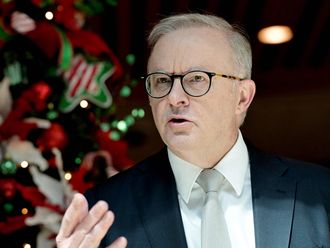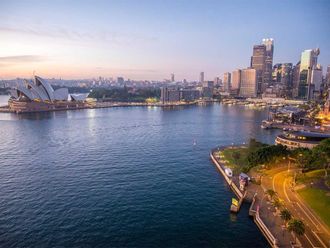Brussels: A plan to turn Mali into a stable democracy rather than a terrorist haven drew massive support Wednesday as various nations and international organisations pledged 3.25 billion euros ($4.22 billion) to help reconstruct the conflict-ridden West African nation.
The objective of the donors’ conference in Brussels had been to raise 2 billion euros ($2.6 billion) to support an ambitious 4.3 billion euro ($5.6 billion) plan drafted by Malian officials aimed at helping what many observers now view as a failed state re-emerge as a stable and secure democracy.
By Wednesday evening, the pledges made far exceeded that goal.
“This conference was a total success,” Mali’s interim president, Dioncounda Traore, said, as he expressed unreserved thanks to the international community.
While the goal had been to raise 2 billion euros, he admitted he would have been pleased with 1.6 billion. The fact that the conference raised twice that much showed just how serious a threat the international community sees in an ungoverned Mali.
A list of the pledges was not immediately released. But French President Francois Hollande said his country would contribute 280 million euros ($363.3 million). Germany committed 100 million euros to the project, to be paid out through 2014 provided Mali’s planned elections take place.
In Washington, State Department spokesman Patrick Ventrell said the Obama administration would ask Congress for $180 million in funding for Mali in 2014, after the elections.
And a British official said the UK would pledge £128 million ($195 million) to help make Mali and the broader Sahel region more secure - but it was unclear how much of that was specifically for Mali.
The day before the conference, the European Union had announced it would give 520 million euros ($674.8 million) over the next two years - more than one-quarter of the amount sought.
Mali fell into crisis in 2012 as disparate rebel groups took over the north and a military coup ousted the government, which is based in the south. Many international officials feared that Mali’s vast ungoverned northern area was giving terrorist groups free reign to hatch plots targeting other nations.
In January, France, Mali’s former colonial master - acting on the request of the Malian government - sent troops to retake control of the northern region. They were ultimately assisted by troops from other African countries and the effort has largely been a success.
But the question is what comes next.
“The war is being won,” French Foreign Minister Laurent Fabius said Wednesday. “We must now win the peace.”
As the conference opened Wednesday, Mali’s finance minister, Tiena Coulibaly, said the country’s crisis had had grave consequences for Malians, as hotels stood empty and trade and the economy collapsed.
“This has led to poverty - extreme poverty - to unemployment and the occurrence of disease,” Coulibaly said.
Ertharin Cousin, executive director of the World Food Programme, also described a dire situation for Malians.
“We still have 300,000 people who are internally displaced from northern Mali living in southern Mali, and another 175,000 people who are in Burkina Faso, Niger and Mauritania,” Cousin told The Associated Press. “The government is now estimating that over 660,000 children under the age of five are in danger of being chronically malnourished.”












